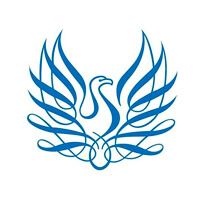fees waived
Human Biosciences, BSc (Hons)
Coventry University, United Kingdom
Subject ranking
UK / The Times 19th
UK / The Times 52nd
UK / CUG 54th
Costs
food & rentS$16.8K / year
Entry requirements
Scholarships
Unlimited quantity
Unlimited quantity
Unlimited quantity
Limited quantity
Information
Code
Intakes
Website (External)
Programmes
Information
Duration
2028
Course summary
Our Human Biosciences BSc (Hons) course looks to enhance your understanding of how the human body functions in health and disease at the tissue, cell and molecular level. You will study topics at the forefront of scientific discovery such as genomics, neurophysiology, and communicable and non-communicable diseases.Human biosciences embraces some of the most rapidly changing and dynamic areas of modern science and has been responsible for an array of ground-breaking scientific discoveries in human health and disease. Over 1.2 million people work in primary science-based roles in the UK, with the boundaries between biosciences, chemical sciences and physical sciences becoming increasingly blurred.
- This course aims to equip you to assess and understand new scientific developments and to communicate effectively to diverse audiences, to encourage dialogue between the public, academics and policy makers to advance progress towards a healthier future for us all.
- It aims to enhance your understanding of how the human body functions in health and disease at the tissue, cell and molecular level, throughout the lifespan. We place great emphasis on the acquisition of broad human biosciences knowledge and practical expertise, which is most likely to be useful in your future career related to human biosciences.
- Laboratory sessions form a substantial component of your learning experience, providing you with the opportunities to learn key experimental techniques and develop the essential experimental, data handling and reporting skills required in biological and other careers.
- Well-equipped suite of analytical and biological laboratories where you can gain hands-on experience using industry-standard techniques.
- You will have the opportunity to gain hands-on experience of a wide range of laboratory techniques such as gene amplification using PCR, gene sequencing, cell culture, flow cytometry, tissue staining, protein detection and bacterial growth, in modern, well-equipped laboratories.
- We offer research-inspired teaching with input from experts in our university research centres, which focus on the themes of cellular and molecular biosciences; biological systems, health and disease; and physical activity, exercise and obesity.
- Support applying for placements in laboratory and industrial settings to gain crucial real-world experience.
- You will have the opportunity to undertake challenging lab and non-lab based independent research projects, dealing with important life science research questions, which in the past have tackled, for example, the antimicrobial activity of essential oils, cinnamon and ginger against drug-resistant clinical pathogens or the effect of sleep deprivation on physiological and mental health in healthy young adults.
Modules
This course has a common first yearThe common first year enables you to work alongside students doing similar courses to you, to widen your knowledge and exposure to other subject areas and professions. You will have the opportunity to collaborate with other students, so you can share your insights and experience which will help you to develop and learn. If you discover an interest in a specific subject you have studied, upon successful completion of your first year, you could swap degrees with another course in your common first year (subject to meeting progression requirements). Common first year coursesBiomedical Science BSc (Hons)Biological and Forensic Sciences BSc (Hons)Pharmacology BSc (Hons) ModulesHuman physiology: Homeostasis and HealthGenetics, Heredity and Evolution Structure, Function and Analysis of BiomoleculesCell Communication, Structure, and FunctionThe Microbial WorldApplied Techniques in BiologyYear TwoIn year two, you will develop more advanced knowledge and skills to do with: human health and disease, microorganisms, genetic diversity, neurophysiology and the immune system, among others. ModulesHealthy Human PhysiologyMicroorganisms in Human Health and DiseaseHuman Genetic DiversityNeurophysiologyThe Immune System in Health and DiseaseModern Lifestyles, Health and DiseasePlacement YearThere’s no better way to find out what you love doing than trying it out for yourself, which is why a work placement* can often be beneficial. Work placements usually occur between your second and final year of study. They’re a great way to help you explore your potential career path and gain valuable work experience, whilst developing transferable skills for the future.If you choose to do a work placement year, you will pay a reduced tuition fee* of £1,250. For more information, please go to the fees and funding section. During this time you will receive guidance from your employer or partner institution, along with your assigned academic mentor who will ensure you have the support you need to complete your placement.Final YearYour final year aims to bring you to the level to enter the world of work by consolidating your knowledge and skills from year one and two. You could also work on a large final project in an area of your interest, with the support of a mentor and your Academic Personal Tutor. We regularly review our course content, to make it relevant and current for the benefit of our students. For these reasons, course modules may be updated. Before accepting any offers, please check the website for the most up to date course content. For full module details please check the course page on the Coventry University website. *For further information please check the course page on the Coventry University website
Assessment method
This course will be assessed using a variety of methods which will vary depending upon the module.Assessment methods include:Online testsEssays and critical reviews of scientific topicsCase studiesGroup work for presentations, lab projects and reports Individual presentations Laboratory ReportsLab skill competencyPosters and other information resources (e.g. videos, websites, briefing papers)The Coventry University Group assessment strategy ensures that our courses are fairly assessed and allows us to monitor student progression towards achieving the intended learning outcomes.
Professional bodies
Professionally accredited courses provide industry-wide recognition of the quality of your qualification.- Royal Society of Biology
A local representative of Coventry University in Singapore is available online to assist you with enquiries about this course.

